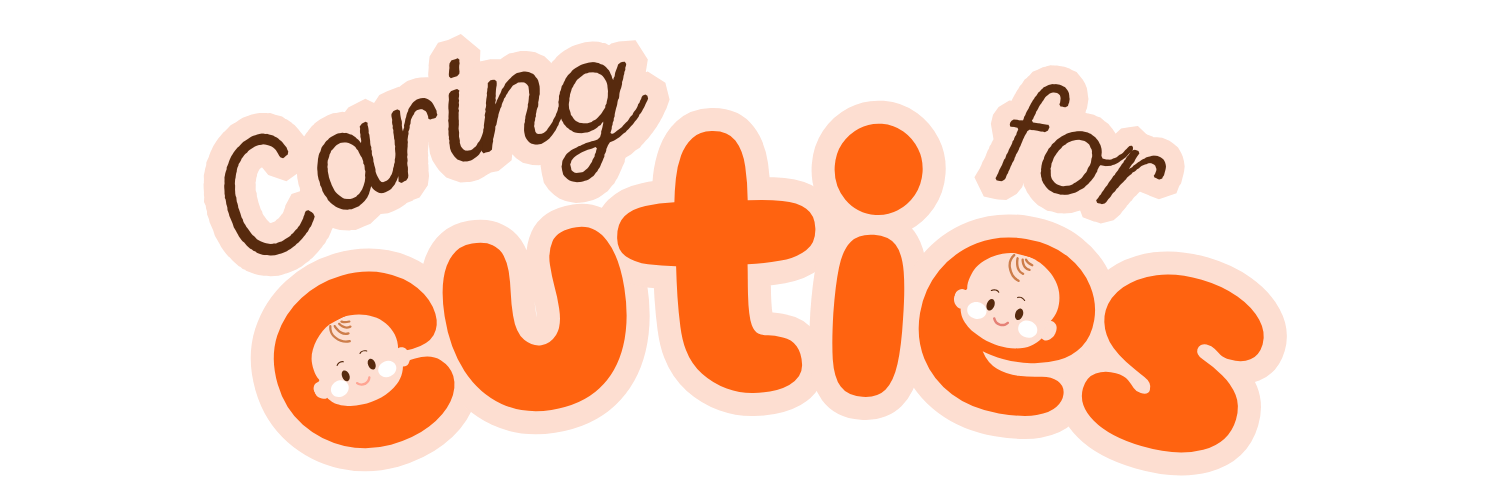Are you eating for two, or just doubling your usual portions? This common myth often misleads expectant mothers. The truth about pregnancy nutrition is more complex and vital for both mom and baby’s health. Let’s look at how to feed your body during this time.

Pregnancy brings many changes, including new nutritional needs. A balanced diet isn’t just about eating more. It’s about eating the right foods. Understanding pregnancy nutrition can greatly impact your journey to motherhood.
Your body works hard to support your growing baby, changing your nutritional needs. A healthy diet during pregnancy is not just good; it’s necessary. It can prevent problems, support your baby’s growth, and even affect your child’s health later on.
Key Takeaways
- Pregnancy nutrition goes beyond just eating more
- A balanced diet supports both maternal and fetal health
- Specific nutrients like folic acid are crucial during pregnancy
- Managing food cravings is part of a healthy pregnancy diet
- Proper nutrition can prevent pregnancy complications
- The right diet influences your baby’s long-term health
Understanding Pregnancy Nutrition Fundamentals
Pregnancy changes a woman’s body a lot. It also changes what she needs to eat. Eating right is key for her health and the baby’s growth.
How Nutritional Needs Change During Pregnancy
As the pregnancy goes on, the body needs more food. This is especially true in the second and third trimesters. The body needs more protein, iron, and calcium to help the baby grow and for hormonal changes.

The Impact of Diet on Maternal and Fetal Health
Eating well during pregnancy helps avoid problems. It also helps the baby grow strong. Good nutrition helps the baby’s organs form, boosts the immune system, and supports brain growth.
Eating well during pregnancy is like laying a strong foundation for your baby’s future health.
Key Components of a Balanced Pregnancy Diet
A good pregnancy diet includes many different foods. Here’s what’s important:
| Food Group | Servings per Day | Benefits |
|---|---|---|
| Fruits and Vegetables | 5-7 | Provide vitamins, minerals, and fiber |
| Whole Grains | 6-8 | Supply energy and B vitamins |
| Lean Proteins | 3 | Support fetal growth and development |
| Dairy Products | 3-4 | Provide calcium for bone health |
By eating right, moms-to-be can give their babies a healthy start.
Essential Nutrients for a Healthy Pregnancy
Pregnancy nutrition is key for mom and baby. Some nutrients are vital for growth and health. Let’s look at the most important ones for this time.
Critical Role of Folic Acid in Early Development
Folic acid is vital to avoid birth defects. It helps form the baby’s brain and spinal cord. Eat foods like leafy greens, beans, and fortified grains for 400-800 micrograms daily.
Iron Requirements and Prevention of Anemia
Iron makes new red blood cells. It carries oxygen to your baby. Pregnant women need 27 milligrams of iron daily. Good sources are lean meats, spinach, and iron-fortified cereals.

Calcium and Vitamin D for Bone Health
Calcium builds strong bones and teeth for your baby. Vitamin D helps your body use calcium. Aim for 1000 milligrams of calcium and 600 IU of vitamin D daily. Good sources are dairy, fortified plant milks, and sunlight.
Omega-3 Fatty Acids for Brain Development
Omega-3s are good for your baby’s brain and eyes. Eat fatty fish like salmon twice a week. Or take a prenatal supplement with DHA.
| Nutrient | Daily Requirement | Food Sources |
|---|---|---|
| Folic Acid | 400-800 mcg | Leafy greens, beans, fortified grains |
| Iron | 27 mg | Lean meats, spinach, fortified cereals |
| Calcium | 1000 mg | Dairy, fortified plant milks |
| Vitamin D | 600 IU | Fortified milk, sunlight exposure |
Creating Your Pregnancy Nutrition Plan
Making a pregnancy food chart is crucial for your health. It helps you and your baby stay healthy. Let’s look at how to make a plan that’s just right for you.

Begin by writing down foods full of important nutrients. Add fruits, veggies, whole grains, lean proteins, and dairy. This is the start of your food chart. Change the amounts as your needs change with each trimester.
Here are some meal planning tips:
- Eat small, frequent meals to manage nausea and keep your energy up
- Choose foods that are packed with nutrients to get the most calories
- Drink plenty of water and low-sugar drinks
- Make sure your meals have lots of colors for different vitamins and minerals
Keep track of what you eat to make sure you’re getting all the nutrients. A simple food diary can help you see if you’re missing anything. Then, you can make the needed changes.
| Food Group | Daily Servings | Key Nutrients |
|---|---|---|
| Fruits | 3-4 | Vitamin C, Fiber |
| Vegetables | 4-5 | Folate, Iron |
| Whole Grains | 6-8 | B Vitamins, Fiber |
| Lean Proteins | 2-3 | Iron, Protein |
| Dairy | 3 | Calcium, Vitamin D |
Remember, a healthy diet during pregnancy isn’t about being perfect. It’s about making good choices that help you and your baby. Talk to your healthcare provider to make sure your plan fits your needs.
Managing Food Cravings and Aversions During Pregnancy
Pregnancy brings big changes, including new food likes and dislikes. Hormonal changes can make you crave or dislike certain foods. Knowing what you want can help you eat well and safely.
Common Pregnancy Cravings and Their Meanings
Food cravings in pregnancy can be different for everyone. Some want pickles and ice cream, while others prefer fruits or salty snacks. These cravings might show what your body needs or just be a sign of hormonal changes. Paying attention to your body can lead you to better choices.
Healthy Alternatives for Unhealthy Cravings
When you crave unhealthy foods, try healthier options instead. For sweets, choose fresh fruit over candy. For salty tastes, pick nuts or whole-grain crackers instead of chips. These choices are good for you and your baby.
Dealing with Morning Sickness and Food Aversions
Food aversions can make eating hard, especially early on. To fight morning sickness, eat small meals often and drink lots of water. Ginger tea or crackers might help your stomach. If some foods make you sick, skip them and find other healthy foods you can eat.
“Listen to your body, but also be mindful of making nutritious choices. Balancing cravings with healthy eating is key during pregnancy.”
Every pregnancy is different. What works for one woman might not work for another. Always talk to your healthcare provider about your diet and any concerns.
Foods to Avoid During Pregnancy
Pregnancy means making careful choices about what you eat. Some foods can be harmful to both mom and baby. Knowing which foods to avoid helps expectant mothers make better food choices.
Raw or undercooked meats, eggs, and seafood are off-limits. They might have harmful bacteria like Salmonella or Listeria. Pregnant women should choose well-cooked foods to keep themselves and their babies safe.
Unpasteurized dairy and soft cheeses can also be risky. It’s best to pick pasteurized options to avoid foodborne illnesses. High-mercury fish, like shark and swordfish, should be avoided because they can harm the baby’s brain.
Caffeine is another thing to watch during pregnancy. While a little is okay, too much can increase the risk of miscarriage or low birth weight. Try to limit caffeine to 200mg a day, about one 12-ounce cup of coffee.
- Raw sprouts
- Unwashed produce
- Deli meats and hot dogs
- Raw or undercooked sushi
- Alcohol in any form
By avoiding these foods and making smart choices, pregnant women can lower their risk of infections and other problems. Always talk to a healthcare provider for advice on what to eat during pregnancy.
Meal Planning and Portion Control
Proper meal planning and portion control are key for a balanced diet during pregnancy. A good eating plan helps in healthy growth and gives the best nutrition to mom and baby.
Trimester-Specific Meal Plans
Each trimester has its own nutritional needs. In the first trimester, eat foods rich in folate. The second trimester needs more protein and calcium. The third trimester requires extra iron and omega-3 fatty acids.
Healthy Snacking Options
Smart snacking keeps energy up and controls cravings. Pick foods like Greek yogurt with berries, hummus with veggie sticks, or whole grain crackers with cheese.
Proper Portion Sizes During Pregnancy
Eating for two doesn’t mean eating double. Focus on quality, not quantity. Use the plate method: half for veggies, quarter for protein, and quarter for whole grains. This way, you get a balanced diet without eating too much.
| Food Group | Recommended Daily Servings | Examples |
|---|---|---|
| Fruits | 3-4 | 1 medium apple, 1 cup berries |
| Vegetables | 4-5 | 1 cup leafy greens, 1/2 cup cooked veggies |
| Proteins | 5-6 oz | 3 oz chicken, 1/2 cup beans |
| Grains | 6-8 oz | 1 slice whole wheat bread, 1/2 cup cooked quinoa |
| Dairy | 3 | 1 cup milk, 1 oz cheese |
Remember, meal planning isn’t about being perfect. It’s about making a healthy eating plan that supports your pregnancy journey.
Supplementation and Prenatal Vitamins
Pregnancy needs more nutrients for mom and baby. Prenatal vitamins help fill these gaps. Let’s look at how to pick and use them.
Choosing the Right Prenatal Vitamin
Look for prenatal vitamins with folic acid, iron, and calcium. Folic acid prevents birth defects. Iron keeps blood healthy. Calcium is for strong bones for mom and baby.
When to Start Prenatal Supplements
Start prenatal vitamins before pregnancy if you can. This ensures enough folic acid for early fetal growth. If pregnant, start right away. Keep taking them during pregnancy and while breastfeeding.
Natural vs. Synthetic Supplements
Natural and synthetic supplements both offer essential nutrients. Natural ones come from food, while synthetic ones are made in labs. Your doctor can guide you to the best choice.
| Nutrient | Natural Source | Synthetic Source |
|---|---|---|
| Folic Acid | Leafy greens, beans | Folic acid pills |
| Iron | Red meat, spinach | Ferrous sulfate tablets |
| Calcium | Dairy products, sardines | Calcium carbonate supplements |
Remember, supplements don’t replace a healthy diet. Eat a variety of foods for all nutrients your baby needs. Always talk to your doctor before starting any new supplements.
Hydration and Beverage Guidelines
Staying hydrated is key for your well-being during pregnancy. It supports your growing baby and helps manage common discomforts. Aim for 8-10 cups of water daily to keep your body healthy.
Water should be your first choice. But, other drinks can also help with your daily fluid needs:
- Milk: Rich in calcium and protein
- Fresh fruit juices: Packed with vitamins
- Herbal teas: Caffeine-free and soothing
Caffeine intake during pregnancy needs careful thought. While a little is okay, too much can be risky. Try to keep your daily caffeine under 200mg, about one 12-ounce cup of coffee.
| Beverage | Caffeine Content (mg) | Safe Daily Limit |
|---|---|---|
| Coffee (8 oz) | 95-200 | 1 cup |
| Black tea (8 oz) | 14-70 | 2-3 cups |
| Green tea (8 oz) | 24-45 | 4-8 cups |
| Cola (12 oz) | 23-35 | 5-8 cans |
Proper hydration and smart drink choices are key for a healthy pregnancy. They help support your journey and overall well-being.
Conclusion
Good nutrition during pregnancy is key for both mom and baby. Eating well helps your baby start life strong. Focus on folic acid, iron, and omega-3s to help your baby grow well.
Make sure your diet has lots of fruits, veggies, lean meats, and whole grains. Drink plenty of water and pick foods rich in nutrients. This helps you and your baby stay safe and healthy.
Using the tips from this article can make your pregnancy better. Good nutrition is not just for you. It’s also for your baby’s health for life. Enjoy this time and eat well for a healthy pregnancy.
FAQ
How do nutritional needs change during pregnancy?
Nutritional needs go up a lot during pregnancy. This is because of hormonal changes and the baby’s growth. You might need about 340-450 more calories a day in the second and third trimesters.
You also need more nutrients like folic acid, iron, calcium, and protein. These help the fetus grow and keep you healthy.
What are the most important nutrients for a healthy pregnancy?
Important nutrients include folic acid for preventing neural tube defects, iron to avoid anemia, and calcium and vitamin D for bones. Omega-3 fatty acids are key for brain development, and protein supports growth.
Eating a balanced diet with fruits, veggies, whole grains, lean proteins, and dairy is best.
How can I manage food cravings during pregnancy?
Find healthier options for cravings. For example, choose fresh fruits over candy. Drinking water and eating regular meals can help.
If cravings are strong, have a small amount of what you want. But keep your diet mostly healthy.
What foods should I avoid during pregnancy?
Avoid raw or undercooked meat, fish with high mercury, raw eggs, unpasteurized dairy, and cold cuts unless heated. Limit caffeine and avoid alcohol.
These steps help prevent infections and risks to the baby.
How much water should I drink during pregnancy?
Drinking 8-10 glasses (64-80 ounces) of water a day is key. You might need more in hot weather or when active.
Drinking enough water helps prevent constipation, UTIs, and supports blood volume.
When should I start taking prenatal vitamins?
Start prenatal vitamins before trying to conceive. If pregnancy is unplanned, start as soon as you find out.
Prenatal vitamins are crucial in the first trimester for the baby’s neural tube.
How can I create a balanced pregnancy meal plan?
Include a variety of foods from all groups. Aim for 6-11 grain servings, 3-5 veggies, 2-4 fruits, 3-4 dairy, and 2-3 proteins daily.
Add healthy fats from avocados and nuts. A dietitian can help make a personalized plan for you.
How can I deal with morning sickness and food aversions?
Eat small meals and avoid strong-smelling foods. Ginger tea or lemon water can help with nausea.
For aversions, focus on foods you can eat and find other ways to get needed nutrients. If bad, talk to your doctor about safe options.
Is it safe to follow a vegetarian or vegan diet during pregnancy?
Vegetarian and vegan diets can be safe if well-planned. Make sure you get enough protein, iron, vitamin B12, calcium, and zinc.
A dietitian can help ensure you’re getting all the nutrients you need. You might need supplements, especially for vitamin B12.
How much weight should I gain during pregnancy?
Weight gain depends on your pre-pregnancy BMI. Women with a normal BMI should aim for 25-35 pounds.
Underweight women might need to gain 28-40 pounds, while overweight women should aim for 15-25 pounds. Your doctor can give you a personalized plan.







